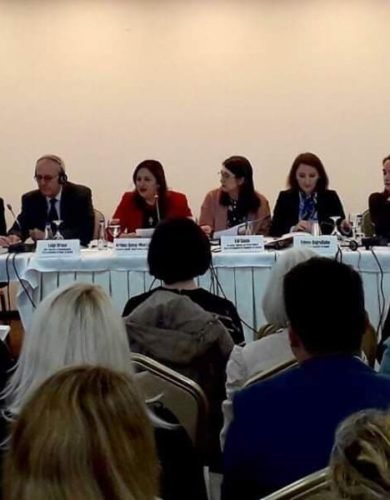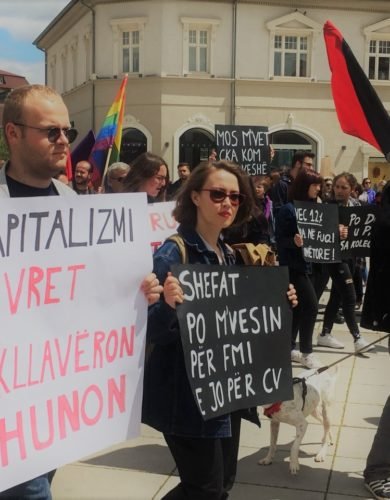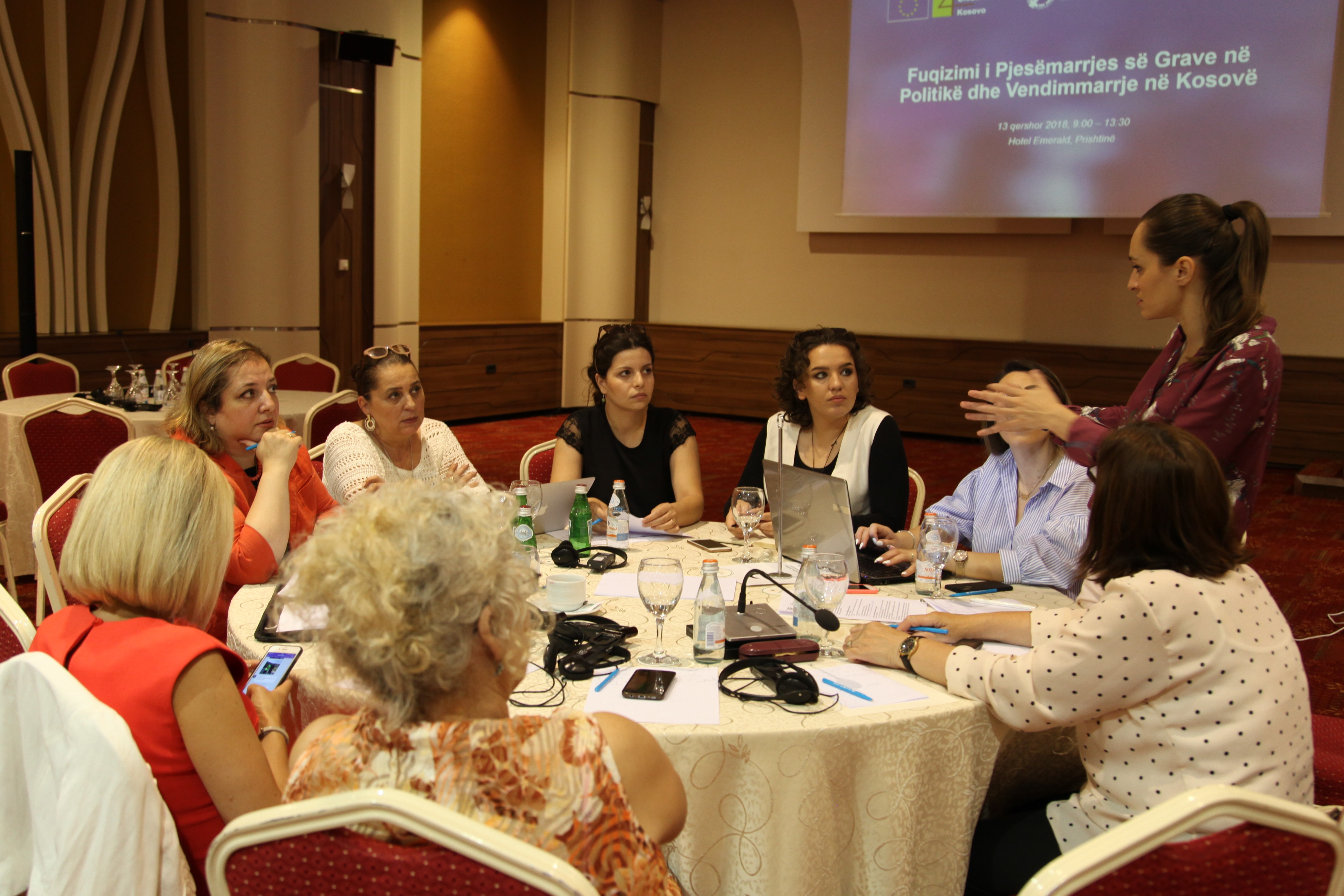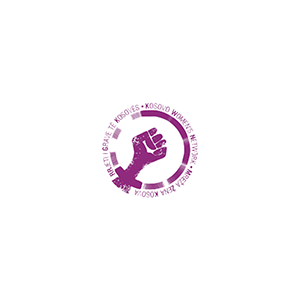
The Problem
In Kosovo, women face significant barriers to economic empowerment due to limited access to employment, property, and financial decision-making, with cultural norms reinforcing their role as caregivers and discouraging labour force participation. Only 21.2% of women are active in the labour market compared to 55.9% of men, and men own the vast majority of enterprises. Discriminatory hiring practices, lack of paid maternity leave, and widespread informal employment further disadvantage women. Despite legal protections, women often forgo inheritance rights, and the lack of affordable childcare continues to limit their economic independence.

KWN’s Strategy
Improving conditions for women’s participation in the labour force, with the long-term goal being for women and men to have equal economic opportunities at home and in the public sphere, realized through:
- Raising institutional awareness on aligning labour laws with EU standards and tackling workplace gender discrimination.
- Improving access to justice for gender-based discrimination at work.
- Promoting gender-responsive strategies for addressing the informal economy.
- Advocating for expanded care services, especially in rural areas.
- Increasing women’s access to property and inheritance through legal aid and reforms.
- Strengthening understanding of rural and disabled women’s needs among officials.
- Informing international funders on gender-responsive economic policies.
Main Activities
- Continue advocating for legal and policy reforms, including amendments to the Labour Law, increased availability of , and removal of provisions that allow women to waive inheritance rights.
- Continue promoting gender-responsive approaches in government subventions, informality interventions, and care services, ensuring a “do no harm” principle.
- Continue collaborating with the Women’s Economic Forum to advance evidence-based advocacy aligned with the EU Acquis on Gender Equality.
- Continue engaging institutions through meetings and social media campaigns to raise awareness about research findings and needed reforms.
- Continue advocating for improved access to justice in cases of workplace gender discrimination and for higher salaries for personal assistants to persons with disabilities.
- Continue influencing international financial institutions and donors to increase support for diverse civil society organizations and adopt gender-responsive policies, including through policy briefs and regional/international advocacy.
Our Achievements
- KWN influenced at least 18 laws and policies related to women’s labour rights and economic empowerment, aligning them more closely with EU gender equality standards.
- KWN’s research — such as “In the Shadows” — has directly informed government strategies and international discussions, promoting gender-responsive approaches to labour, informality, and care systems.
- KWN led 8 initiatives in 2024 advocating for increased access to preschools, childcare, and elder care, especially in rural areas, influencing national and EU discussions.
- As a direct result of KWF support, more than 41 women, mostly from rural areas, have become employed.
- KWN supported over 200 cases of labour rights violations and informed over 10,000 women about their rights to property and inheritance, with 335 women receiving direct support in claiming those rights.
- KWN raised awareness of the importance of women registering their property. As a result of this initiative 6,088 citizens in five municipalities (3,150 women and 2,938 men) are more aware of the importance of women registering their property, whereas 153 women initiated the process of registering their property.
- KWN has supported approximately 30 women’s rights groups to help their members identify new markets for their products, increasing productivity and outputs. As a result, 223 women have been trained to develop and manage successful businesses, and 125 women have better access to markets.


